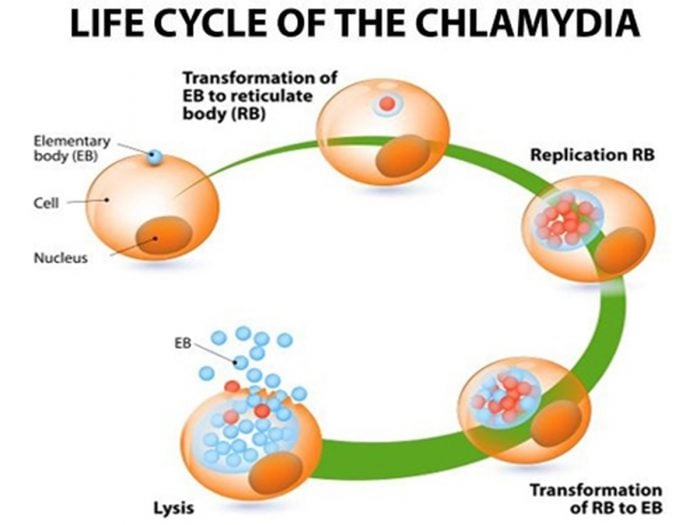Chlamydia is a disease that spreads easily and has mild or no symptoms at all. This makes it important to know the causes and symptoms of this disease so that many of us can prevent it.
What is Chlamydia?
Chlamydia infection is a sexually transmitted disease (STD) that is caused by a specific bacteria called Chlamydia trachomatis. It is the most widely reported sexually transmitted disease, with almost 1 million cases in the United States alone. Although one of the myths of chlamydia is that it cannot be cured, which is false; antibiotics can be used to rid the body of this infection. Having said that, long-term exposure to the illness without treatment can cause long-lasting and more permanent effects. [1]
In women, however, symptoms rarely show, which is why it is so easy for them to spread it to unknowing men. However, in males, it is displayed by the release of a white liquid when urinating. If you see signs and symptoms of chlamydia, contact your doctor immediately.

Chlamydia is a common STD that can infect both men and women. Photo Credit: Shutterstock
Causes
Chlamydia is caused by tiny, living cells of the bacteria called Chlamydia trachomatis which live in the uterus, vagina, cervix, urethra, rectum, and sometimes also in the throat and eyes.
- Unprotected sex: It is a sexually transmitted disease (STD) and therefore anyone who has unprotected sex or genital contact with an infected person, is at risk of having chlamydia. It can be passed on by way of oral or anal sex with an infected person. [2]
- Vertically transmitted: It can also pass on to the child during pregnancy if the mother is infected by the bacterium and is unaware of it.
Symptoms
Chlamydia bacterial infection is often considered as the silent killer in women, since it starts off with very ignorable symptoms, which, when left unchecked, can have serious implications for your health. Below are listed some symptoms that you need to recognize for chlamydia. [3]
Common Symptoms
- Burning sensation and pain while urinating
- Yellow or milky white discharge (from the penis or vagina)
In women
- Sudden urge to urinate
- Pain during sex
- Bleeding during sex
- Pain in the lower back and abdominal area
- Heaviness in the hips
- Fever
In men
- Swelling in the testicle region
- Pain in and around the testicles
- Burning and itching around the tip of the penis
If left untreated, chlamydia can also develop into infertility, PID, and bartholinitis in women. Therefore, making a proper diagnosis of the condition is very important.
